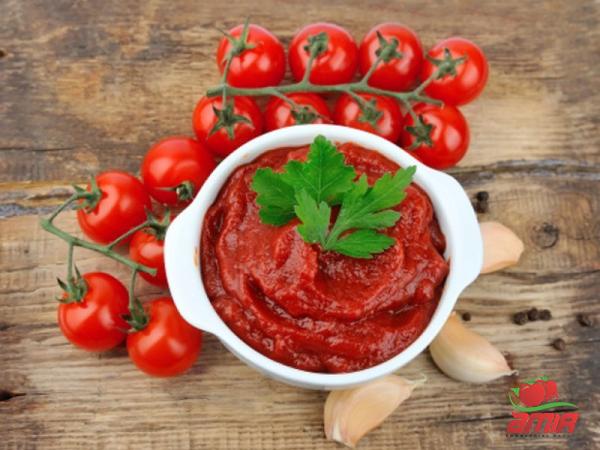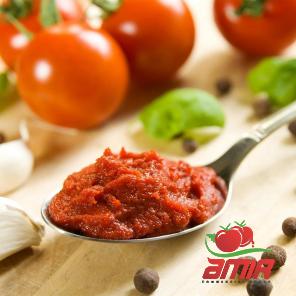A Guide to Canned Diced Tomato Varieties: Exploring Types, Uses, and Benefits Introduction: Canned diced tomatoes are a versatile pantry staple that provides convenience, nutrition, and flavor to a variety of dishes. They come in different types and variations, each with unique characteristics that cater to diverse culinary needs. This article aims to delve into the world of canned diced tomatoes, exploring the various types available, their uses in different recipes, and the benefits they offer. 1. Standard Diced Tomatoes: The most common variant, standard diced tomatoes are made by chopping ripe tomatoes into small, uniform pieces before canning them. They offer a balance of acidity, sweetness, and texture. Standard diced tomatoes are an essential ingredient in countless recipes, including stews, chili, pasta sauces, and salsas. They can be further enhanced by adding spices, herbs, or other seasonings according to taste. 2. Fire-Roasted Diced Tomatoes: Fire-roasted diced tomatoes are made by subjecting tomatoes to intense heat, resulting in a smoky flavor and charred appearance. This process enhances the natural sweetness of the tomatoes and gives a unique depth to dishes like soups, chili, and Mexican-inspired dishes. These tomatoes can add a delightful smokiness to salsas and bruschettas, offering a distinctive flavor profile. 3. Italian-Style Diced Tomatoes: Italian-style diced tomatoes are infused with classic Mediterranean flavors such as basil, garlic, and oregano. This variety is ideal for Italian dishes like pasta sauces, lasagna, and pizza. The additional seasonings in Italian-style diced tomatoes eliminate the need to individually add herbs, adding convenience to recipes while infusing them with authentic Italian flavors. 4. No Salt Added Diced Tomatoes: For those watching their sodium intake, no salt added diced tomatoes provide a healthy alternative. These tomatoes undergo the same canning process as other types, minus the added salt. They are suitable for recipes where precise control over sodium levels is desired, allowing individuals to season their dishes as per their taste and dietary needs.

tomato paste
 5. Organic Diced Tomatoes: Organic diced tomatoes are grown without the use of synthetic fertilizers, pesticides, or genetically modified organisms (GMOs). They offer the benefits of supporting sustainable agriculture, reducing exposure to harmful chemicals, and providing a higher nutritional value. Ideal for individuals seeking organic options, these tomatoes can be used in a wide range of recipes, just like their conventional counterparts. 6. Low-Sodium Diced Tomatoes: Similar to no salt added diced tomatoes, low-sodium diced tomatoes are designed specifically for individuals on a restricted sodium diet. These tomatoes contain reduced levels of sodium while still providing the flavor and versatility of standard diced tomatoes. They are an excellent choice for those looking to minimize their sodium intake without compromising taste. 7. Crushed Tomatoes: Crushed tomatoes are made by grinding peeled tomatoes into a thicker, coarse consistency compared to diced tomatoes. Their texture is ideal for creating hearty pasta sauces, meat sauces, and pizza toppings that require a thicker base. Crushed tomatoes work exceptionally well in recipes that require longer cooking times, as they retain their texture and flavor. 8. Stewed Tomatoes: Stewed tomatoes are cooked slowly in a delicious blend of herbs and spices, resulting in a softer texture and a rich, savory flavor. They are typically seasoned with onions, celery, peppers, and various herbs like bay leaves and thyme. Stewed tomatoes make an excellent base for chili, soups, and hearty stews, as their flavor infuses well with other ingredients. Benefits of Canned Diced Tomatoes: a. Convenience: Canned diced tomatoes save time and effort in the kitchen, eliminating the need for laborious tomato preparation. They offer a convenient way to incorporate the flavor and nutritional benefits of fresh tomatoes into a variety of recipes year-round. b. Shelf Stability: Canned diced tomatoes have an extended shelf life, making them a reliable pantry staple. They are not subject to seasonal availability, ensuring that the ingredient is readily accessible whenever needed. c. Nutritional Value: Canned diced tomatoes retain many of the nutritional benefits of fresh tomatoes. They are a good source of vitamins A, C, and K, as well as antioxidants like lycopene. d. Versatility: The wide variety of canned diced tomato types allows for versatility in recipes, catering to different flavor profiles and culinary preferences. From basic soups and stews to complex pasta sauces and salsas, diced tomatoes can be a key ingredient in a wide range of dishes.
5. Organic Diced Tomatoes: Organic diced tomatoes are grown without the use of synthetic fertilizers, pesticides, or genetically modified organisms (GMOs). They offer the benefits of supporting sustainable agriculture, reducing exposure to harmful chemicals, and providing a higher nutritional value. Ideal for individuals seeking organic options, these tomatoes can be used in a wide range of recipes, just like their conventional counterparts. 6. Low-Sodium Diced Tomatoes: Similar to no salt added diced tomatoes, low-sodium diced tomatoes are designed specifically for individuals on a restricted sodium diet. These tomatoes contain reduced levels of sodium while still providing the flavor and versatility of standard diced tomatoes. They are an excellent choice for those looking to minimize their sodium intake without compromising taste. 7. Crushed Tomatoes: Crushed tomatoes are made by grinding peeled tomatoes into a thicker, coarse consistency compared to diced tomatoes. Their texture is ideal for creating hearty pasta sauces, meat sauces, and pizza toppings that require a thicker base. Crushed tomatoes work exceptionally well in recipes that require longer cooking times, as they retain their texture and flavor. 8. Stewed Tomatoes: Stewed tomatoes are cooked slowly in a delicious blend of herbs and spices, resulting in a softer texture and a rich, savory flavor. They are typically seasoned with onions, celery, peppers, and various herbs like bay leaves and thyme. Stewed tomatoes make an excellent base for chili, soups, and hearty stews, as their flavor infuses well with other ingredients. Benefits of Canned Diced Tomatoes: a. Convenience: Canned diced tomatoes save time and effort in the kitchen, eliminating the need for laborious tomato preparation. They offer a convenient way to incorporate the flavor and nutritional benefits of fresh tomatoes into a variety of recipes year-round. b. Shelf Stability: Canned diced tomatoes have an extended shelf life, making them a reliable pantry staple. They are not subject to seasonal availability, ensuring that the ingredient is readily accessible whenever needed. c. Nutritional Value: Canned diced tomatoes retain many of the nutritional benefits of fresh tomatoes. They are a good source of vitamins A, C, and K, as well as antioxidants like lycopene. d. Versatility: The wide variety of canned diced tomato types allows for versatility in recipes, catering to different flavor profiles and culinary preferences. From basic soups and stews to complex pasta sauces and salsas, diced tomatoes can be a key ingredient in a wide range of dishes.
Specifications of tomato paste
 Conclusion: Canned diced tomatoes provide an efficient and flavorful way to incorporate the taste and nutritional value of fresh tomatoes into various recipes. Each type offers its own unique qualities, flavors, and advantages, allowing individuals to choose based on their specific needs and preferences. From the standard diced tomatoes to fire-roasted, Italian-style, and low-sodium variations, the multitude of options ensures that there is a canned diced tomato type suitable for every culinary creation. So, whether it’s a comforting pasta dish or a zesty salsa, one can rely on these versatile canned tomatoes to elevate their cooking to the next level.Types of Canned Diced Tomatoes in the Business World 1. Market Overview: The market for canned diced tomatoes has experienced steady growth over the years. With consumer demand for convenience and ready-to-use ingredients on the rise, the demand for these products continues to increase. Canned diced tomatoes are a valuable commodity in the food industry, catering to both consumers and businesses alike. 2. B2C Applications: In the business-to-consumer (B2C) sector, canned diced tomatoes are a popular choice for households, as they provide convenience and versatility in everyday cooking. They serve as a vital ingredient in various recipes, from soups, stews, and pasta sauces to salsas and dips. Canned diced tomatoes offer home cooks a time-saving option, eliminating the need for peeling and dicing fresh tomatoes. They provide consistent quality and flavor, making them a reliable choice for consumers. 3. B2B Applications: Food Services: In the business-to-business (B2B) sector, canned diced tomatoes are an essential ingredient in the food services industry. Restaurants, cafeterias, and catering companies rely on canned diced tomatoes to streamline their operations and ensure consistency in their menu items. These establishments can benefit from the convenience, longer shelf life, and easy storage of canned diced tomatoes. They can be used to make large batches of pasta sauces, soups, and stews, allowing for efficient meal preparation and consistent quality in taste. 4. Product Development: For businesses involved in product development, canned diced tomatoes offer a wide range of opportunities. Companies can leverage the different types of canned diced tomatoes to create innovative and unique products. For example, fire-roasted diced tomatoes can be used to add a smoky flavor to sauces or as a base for ready-to-eat salsa. Italian-style diced tomatoes can be incorporated into new pasta sauce formulations, providing consumers with a taste of Mediterranean cuisine. By exploring the various types of canned diced tomatoes, businesses can develop products that cater to specific market segments, offering a competitive edge in the market.
Conclusion: Canned diced tomatoes provide an efficient and flavorful way to incorporate the taste and nutritional value of fresh tomatoes into various recipes. Each type offers its own unique qualities, flavors, and advantages, allowing individuals to choose based on their specific needs and preferences. From the standard diced tomatoes to fire-roasted, Italian-style, and low-sodium variations, the multitude of options ensures that there is a canned diced tomato type suitable for every culinary creation. So, whether it’s a comforting pasta dish or a zesty salsa, one can rely on these versatile canned tomatoes to elevate their cooking to the next level.Types of Canned Diced Tomatoes in the Business World 1. Market Overview: The market for canned diced tomatoes has experienced steady growth over the years. With consumer demand for convenience and ready-to-use ingredients on the rise, the demand for these products continues to increase. Canned diced tomatoes are a valuable commodity in the food industry, catering to both consumers and businesses alike. 2. B2C Applications: In the business-to-consumer (B2C) sector, canned diced tomatoes are a popular choice for households, as they provide convenience and versatility in everyday cooking. They serve as a vital ingredient in various recipes, from soups, stews, and pasta sauces to salsas and dips. Canned diced tomatoes offer home cooks a time-saving option, eliminating the need for peeling and dicing fresh tomatoes. They provide consistent quality and flavor, making them a reliable choice for consumers. 3. B2B Applications: Food Services: In the business-to-business (B2B) sector, canned diced tomatoes are an essential ingredient in the food services industry. Restaurants, cafeterias, and catering companies rely on canned diced tomatoes to streamline their operations and ensure consistency in their menu items. These establishments can benefit from the convenience, longer shelf life, and easy storage of canned diced tomatoes. They can be used to make large batches of pasta sauces, soups, and stews, allowing for efficient meal preparation and consistent quality in taste. 4. Product Development: For businesses involved in product development, canned diced tomatoes offer a wide range of opportunities. Companies can leverage the different types of canned diced tomatoes to create innovative and unique products. For example, fire-roasted diced tomatoes can be used to add a smoky flavor to sauces or as a base for ready-to-eat salsa. Italian-style diced tomatoes can be incorporated into new pasta sauce formulations, providing consumers with a taste of Mediterranean cuisine. By exploring the various types of canned diced tomatoes, businesses can develop products that cater to specific market segments, offering a competitive edge in the market.
buy tomato paste
 5. Private Label and Food Distribution: Private label brands and food distributors also play a significant role in the canned diced tomatoes market. These businesses work directly with manufacturers to source and distribute high-quality canned diced tomatoes under their own brand names. Private label brands can leverage the popularity of canned diced tomatoes by offering their customers a value-for-money option without compromising on taste and quality. Food distributors ensure the widespread availability of canned diced tomatoes by supplying them to various retail outlets, both large and small, ensuring that consumers have easy access to these products. 6. Packaging Innovation: In the competitive world of business, packaging plays a crucial role in product differentiation and consumer appeal. Canned diced tomatoes are no exception. Businesses can invest in packaging innovation to make their products stand out on store shelves. Eye-catching designs, informative labels, and sustainable packaging materials can attract consumers and enhance brand recognition. Packaging innovation also extends to portion-controlled packaging, offering single-serve options for consumers on-the-go and reducing food waste. 7. International Trade and Export: The market for canned diced tomatoes is not limited to domestic consumption. International trade and export opportunities exist, allowing businesses to tap into global markets. Countries with limited access to fresh tomatoes or seasonal fluctuations can benefit from the import of canned diced tomatoes. Additionally, international cuisines that incorporate diced tomatoes as a key ingredient can create export opportunities for manufacturers. 8. Seasonal Demand and Inventory Management: Canned diced tomatoes also play a vital role in managing seasonal demand and inventory for businesses. During periods of high tomato prices or limited availability, businesses can rely on canned diced tomatoes as a cost-effective alternative. Seasonal demand variations, such as increased demand for tomatoes during the summer months, can be mitigated by stocking up on canned diced tomatoes for use in off-peak seasons. 9. Marketing and Branding Strategies: In the competitive canned diced tomatoes market, effective marketing and branding strategies are essential for businesses to succeed. Companies can focus on communicating the versatility, convenience, and superior quality of their products through various channels, including digital marketing campaigns, social media, and targeted advertising. Highlighting the unique characteristics and uses of different types of canned diced tomatoes can help businesses appeal to specific consumer segments and build brand loyalty. 10. Quality Assurance and Food Safety: For businesses involved in the production and distribution of canned diced tomatoes, maintaining high standards of quality assurance and food safety is paramount. Adhering to regulatory guidelines, implementing rigorous quality control measures, and ensuring proper canning processes are crucial to delivering safe and consistently high-quality products to consumers. Businesses can also invest in certifications and audits to demonstrate their commitment to quality and safety. Conclusion: Canned diced tomatoes are not only a staple ingredient in home kitchens but also a crucial component of various businesses in the food industry. From B2C applications to B2B uses in the food services industry, these versatile products provide convenience, consistency, and flavor. Businesses can leverage the different types of canned diced tomatoes to innovate, develop new products, and cater to specific consumer preferences. Through effective marketing, branding, and packaging strategies, companies can differentiate their offerings in a competitive market. Ultimately, canned diced tomatoes offer a multitude of opportunities for businesses to thrive while meeting the needs and demands of consumers around the world.
5. Private Label and Food Distribution: Private label brands and food distributors also play a significant role in the canned diced tomatoes market. These businesses work directly with manufacturers to source and distribute high-quality canned diced tomatoes under their own brand names. Private label brands can leverage the popularity of canned diced tomatoes by offering their customers a value-for-money option without compromising on taste and quality. Food distributors ensure the widespread availability of canned diced tomatoes by supplying them to various retail outlets, both large and small, ensuring that consumers have easy access to these products. 6. Packaging Innovation: In the competitive world of business, packaging plays a crucial role in product differentiation and consumer appeal. Canned diced tomatoes are no exception. Businesses can invest in packaging innovation to make their products stand out on store shelves. Eye-catching designs, informative labels, and sustainable packaging materials can attract consumers and enhance brand recognition. Packaging innovation also extends to portion-controlled packaging, offering single-serve options for consumers on-the-go and reducing food waste. 7. International Trade and Export: The market for canned diced tomatoes is not limited to domestic consumption. International trade and export opportunities exist, allowing businesses to tap into global markets. Countries with limited access to fresh tomatoes or seasonal fluctuations can benefit from the import of canned diced tomatoes. Additionally, international cuisines that incorporate diced tomatoes as a key ingredient can create export opportunities for manufacturers. 8. Seasonal Demand and Inventory Management: Canned diced tomatoes also play a vital role in managing seasonal demand and inventory for businesses. During periods of high tomato prices or limited availability, businesses can rely on canned diced tomatoes as a cost-effective alternative. Seasonal demand variations, such as increased demand for tomatoes during the summer months, can be mitigated by stocking up on canned diced tomatoes for use in off-peak seasons. 9. Marketing and Branding Strategies: In the competitive canned diced tomatoes market, effective marketing and branding strategies are essential for businesses to succeed. Companies can focus on communicating the versatility, convenience, and superior quality of their products through various channels, including digital marketing campaigns, social media, and targeted advertising. Highlighting the unique characteristics and uses of different types of canned diced tomatoes can help businesses appeal to specific consumer segments and build brand loyalty. 10. Quality Assurance and Food Safety: For businesses involved in the production and distribution of canned diced tomatoes, maintaining high standards of quality assurance and food safety is paramount. Adhering to regulatory guidelines, implementing rigorous quality control measures, and ensuring proper canning processes are crucial to delivering safe and consistently high-quality products to consumers. Businesses can also invest in certifications and audits to demonstrate their commitment to quality and safety. Conclusion: Canned diced tomatoes are not only a staple ingredient in home kitchens but also a crucial component of various businesses in the food industry. From B2C applications to B2B uses in the food services industry, these versatile products provide convenience, consistency, and flavor. Businesses can leverage the different types of canned diced tomatoes to innovate, develop new products, and cater to specific consumer preferences. Through effective marketing, branding, and packaging strategies, companies can differentiate their offerings in a competitive market. Ultimately, canned diced tomatoes offer a multitude of opportunities for businesses to thrive while meeting the needs and demands of consumers around the world.










Your comment submitted.